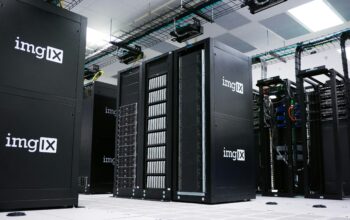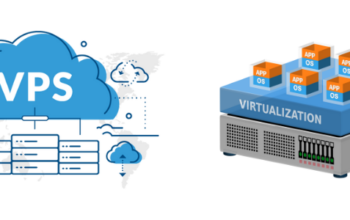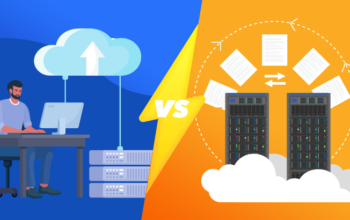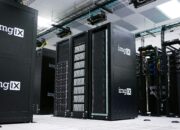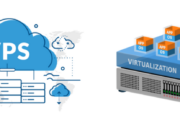Uzone.id – Over the last few years, Malaysia and Indonesia have emerged as major beneficiaries within ASEAN during the data center boom. These two countries are benefiting due to factors such as more number of internet users, requirements for cloud services, and policies of their governments that are favorable towards this business expansion.
For companies to move into digital functions they need strong data capabilities hence making it one among many needs in today’s world. With its strategic location coupled with better connectivity that is being set up day by day; Indonesia is well positioned than any other place in South East Asia while considering such needs because it has low population density and large territory compared to other states within this region.
One of the things that Malaysia has done right is attracting investments into data centers through strategic initiatives and incentives. The government has set aside a lot of money for improving digital infrastructure which can be seen in some policies aimed at attracting investment in technology from both local and international players.
This organization plays a key role in coordinating these efforts so that they can have maximum impact across borders thus contributing towards the growth of good relations between nations according to Mahadhir Aziz who serves as its CEO.“The comprehensive policy framework together with the strategic location make Malaysia an attractive destination point for setting up DCs” said him during an interview session held recently with news reporters here (Mahadhir Aziz).
Moreover, Malaysia’s regulatory framework also supports the establishment of data centers across the country; an example is the National Fiberisation and Connectivity Plan (NFCP) whose objective is to ensure all Malaysians get access to high-speed internet connection no matter where they are living or working from.. With tax holidays given on tech-related investments not forgetting those granted specifically for industry players engaged in this sector; it becomes very easy to attract big names like Google & Microsoft amongst others who have announced their intentions to expand operations locally.
Indonesia alone accounts for more than half of ASEAN’s population thus making it one of the fastest-growing digital economies worldwide. The nation’s rapid shift towards digitization coupled with a surge in e-commerce activities has led to increased demand for localized data centers which can be attributed as key drivers behind the current wave of investments within the country.
This positive trend has also been made possible through various efforts put by the Indonesian government in place to attract foreign direct investments into this sector while at the same time enhancing infrastructure development aimed at supporting the realization of the “making every citizen become digital” vision statement made earlier on by Budi Gunadi Sadikin who serves as Minister Health there.“The commitment shown towards creating better facilities necessary for housing DCs will not only boost economic growth but also act as a magnet attracting investors seeking such opportunities” added him.

Strategic areas where tech companies can enjoy incentives have been identified under the Indonesian SEZs program; Batam is one of them due to its proximity to Singapore alongside other factors that favor the business environment around there. A vibrant ecosystem is being created through the government’s push for entrepreneurial spirit and digital literacy across all levels; these are some critical success factors necessary to ensure continued growth seen within datacentre space not just in Indonesia but worldwide too.
The economic impact of the data center boom in Malaysia and Indonesia cannot be underestimated. It is responsible for the creation of jobs and driving forward technological advancements besides attracting investments into sectors related to it. Data center investments have a multiplier effect which triggers growth in construction, and real estate among other professional services.
Specialized infrastructure is needed during the construction of data centers which in turn boosts the construction industry. For skilled professionals to manage these centers there must also be people who operate them this creates demand for IT talents thereby leading to job opportunities as well as skills acquisition. Data center growth also stimulates the security services supply chain, and facility management sector among others such as equipment supply.
In summary, ASEAN’s data center boom spells great potential for Malaysia and Indonesia with their strategic initiatives, and favorable policies coupled with geographical proximity that puts these countries at an advantage over others. As more digital economies sprout up within regions around these parts so will they become key players not only in terms of technology but economically too.

Malaysia Digital Economy Corporation (MDEC) reflects some efforts made towards realizing this vision while a supportive policy environment created by the Indonesian government underlines the need for a conducive investment climate especially when dealing with such facilities where information storage plays a big role.
Zhu Min from Technode Global said “The fast pace expansion of Malaysia’s and Indonesia’s data centers shows how much effort has been put into making them regional digital hubs. They are attracting large amounts of foreign direct investment through infrastructure improvements therefore bringing about rapid economic growth.” This quote highlights the importance of government policy alongside deliberate action plans aimed at fostering a vibrant online marketplace within any given country.
More than just being regulatory compliance measures, organizations should understand effective data management systems as part of their customer relationship strategies. Companies that properly handle customer preferences through well-organized databases earn trust leading to strong bonding with target groups.




